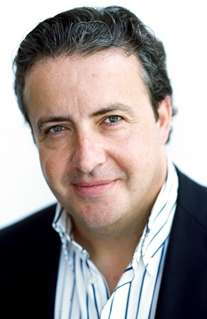|
Back
Bruckner again? Yes, Again! New York
David Geffen Hall, Lincoln Center
01/27/2016 - & January 28*, 29, 30, 2016
Ludwig van Beethoven: Violin Concerto in D Major, Opus 61
Anton Bruckner: Symphony No. 6 in A Major (lNowak Edition)
James Ehnes (Violin)
New York Philharmonic Orchestra, Juanjo Mena (Conductor)

J. Mena (© Sussie Ahlburg)
A pair of Bruckner symphonies within two days could theoretically be a Heaven Too Far. Yet, with such performances, such a heaven can be eternal.
The more popular Fourth Symphony was played on Tuesday with gorgeous sounds, an homage to the Philadelphia Orchestra and their charismatic conductor Yannick Nézet-Séguin. So how, one wondered, would a less familiar conductor, Juanjo Mena, handle a rarer work, Bruckner’s Sixth Symphony?
The second half of last night’s performance was the answer. From the first notes, Mr. Mena not only took the New York Philharmonic through its paces, but he galloped through the piece, partly with passion, equally with sheer urgency. It was as if Mr. Mena had decided beforehand that New Yorkers would not countenance a more leisurely “Austrian” performance: they needed something more pressing to keep the interest.
That premise was erroneous. New York Phil audience are always ready for challenges, if those challenges are worthwhile. And this symphony has a measured self-searching value. Granted, Bruckner’s internal paeans to his God can be solemn, even tortuous. But Mr. Mena understood that religious feelings can be joyous and ebullient as well.
That was his picture. And the Majestoso first movement was played not with an aristocratic human Majesty but something more celestial, more wondering. The tempo wasn’t that much faster than usual, but the Phil plunged ahead with a feeling that there could be no turning back.
Mr. Mena paid not an iota of attention to the second movement “Adagio: Very Solemn”. It was solemn enough, but Adagio was not Mr. Mena picture. This was taken at an Andante tempo, again pushing ahead with a great spacious area. The violins lingered on for a few bars, but that was the only compromise to Bruckner’s original direction.
While this was a most impressive movement, the outcome was that the Scherzo lacked that contrast, it became an interlude. This, though, gave way to the most wondrous Finale. Btruckner said “Not too fast”, yet Maestro Mena meant for this Bruckner to be not only emotionally moving, but temporally moving as well. The Phil seemed to like that kind of movement, for they played with an ardency and a clarity from the first cello notes to the final jubilant chords.
The outcome was a joy, real joy.
And much different from the opening. The evening began with a less than stunning performance of Beethoven’s Violin Concerto. The Canadian-born James Ehnes was last heard here in a lyrical long-lined Samuel Barber Concerto. But lyrical is not the secret to the Beethoven. Underneath the beauty of the violin, a tiger is waiting, and Mr. Ehnes proved himself to be a pussycat.
Possibly the problem was partly Mr. Mena’s. The first movement was flaccid, beginning, after those drum beats, with a tempo that was measured, austere, slow, and more in line with a Bruckner symphony than a showpiece for soloist. Mr. Ehnes went along with it here, sometimes purring, sometimes letting out a roar, but mainly with a less than strong performance. The next two movements were poised, balanced, conservative and frankly a mite too nice, too precious.
Mr. Ehnes is hardly a bad fiddler, technically speaking, as he showed in a dazzling solo encore. As in the Barber, his tone is sweet (the Kreisler cadenzas were masterly) while never over-luscious.
Yet this was hardly in the “great” category. I don’t judge a performance by an audience, but in this case, those around me were dozing off, fingering the program or with those fisheyes which say, “I better keep awake so I can give hearty applause at the end.”
In the Bruckner, those around me were rapt, wide-awake and–appropriately–understood instinctively, if not cerebrally, that this was a singularly stunning performance.
Harry Rolnick
|